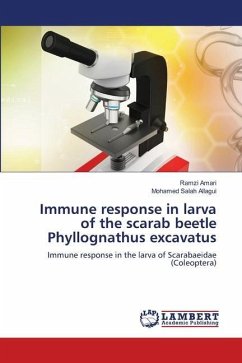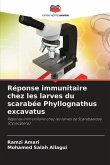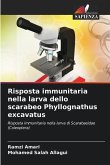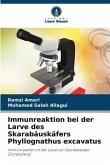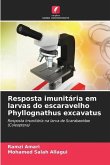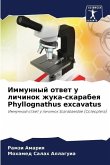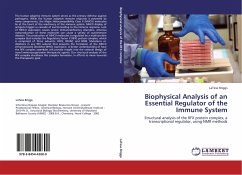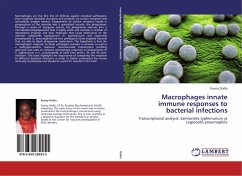The dung beetle Phyllognathus excavatus (Coleoptera: Scarabaeidae) is a widespread and common species throughout its distribution (North Africa, southern Europe, and Asia). The larvae remain most of their life in compost-rich soil feeding on organic matter. This report aimed to identify and describe the larval immune effector cells (hemocytes) types and to investigate their immunological responses. For this, hemolymph was collected to investigate the different circulating cells using both light and scanning electron microscopy. The Larval hemolymph cells were identified and hemocytes immune responses under-reacting with human blood cells was investigated. The hemogram parameters were analyzed in the larval hemolymph, mixture of larval hemolymph and human blood, and healthy adult man blood (as a reference). Experiments showed that granulocytes, plasmatocytes, and coagulocytes were involved in the first line in the lysis of human red blood cells. Results showed that the larvae present also a great number of platelets-like and lymphocytes-like. Besides, the majority of the human red blood cells were killed under the larval immune defense.
Bitte wählen Sie Ihr Anliegen aus.
Rechnungen
Retourenschein anfordern
Bestellstatus
Storno

